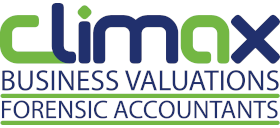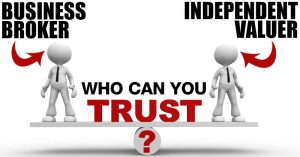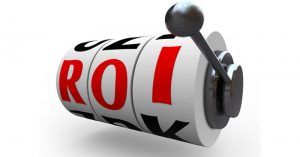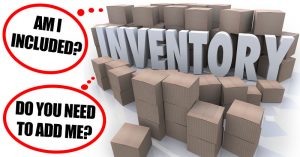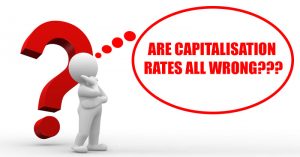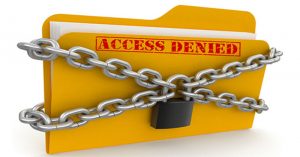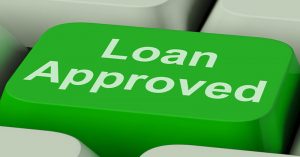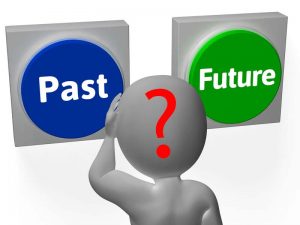As a business valuer working as a court appointed expert I get to see a lot of valuations from other valuers. Some are very good but many are deficient in one or more key areas. In this post I’ll talk about how goodwill should generally be calculated and the common mistakes to look for when reviewing a business valuer’s report. There are always exceptions so I’m talking in general terms. Let’s assume that the appropriate method chosen is the capitalisation of future maintainable earnings method. In our example we will use a simple retail business, selling men’s shoes. We will Read more
Trevor Monaghan
Working out how much a business is worth is difficult at the best of times. The “worth” of anything is a very subjective concept as it depends who you are asking at the time. A set of reading glasses made for Mr Smith are worth a lot to him, but not worth much to Mr Jones, as it’s unlikely he has the same prescription (or perspective) as Mr Smith. The common objective of most business valuation assignments is to estimate the “Fair Market Value” of the business, which is usually a hypothetical price that might be agreed between a knowledgeable Read more
The laws of finance and business valuations don’t disappear just because you like the smell of coffee. Cafes and restaurants are always interesting to conduct a business valuation on because they are not like other businesses. As with any business valuation, my job is to determine what the real profits and risks of the business are so that I can establish a suitable return on investment. But cafes and restaurants are interesting to analyse for the following reasons: Too Much Emotion and the Blind Leading the Blind Many people start or buy a cafe or restaurant because they think it Read more
I work a lot with people buying businesses. Often it’s the buyer’s first time in the business world. Talk is cheap. They are looking for guidance and they form an immediate bond with the business broker and begin to trust what they say. This is understandable because the broker seems to make sense and builds a compelling story about why they should buy the business. The purchaser isn’t in a position to disagree or challenge any of the assertions by the broker and they have no reason not to trust them…or so they think. For some reason, inexperienced purchasers don’t Read more
I always laugh (or cry) when I hear someone explain how their business is different or how their industry is unique and therefore the normal laws of finance don’t apply. This kind of argument typically comes up when someone is trying to justify to themselves or someone else that their business or worth either a fortune or nothing. In one simple sentence they hope to prove that all of these thousand-page textbooks that business valuers are forced to read don’t apply to them because they’re special. Obviously I sound a bit harsh but hear me out. Every investment involves one Read more
As an independent business valuer I get to see lots of valuations done by others. Some are great, some make me cringe. One of the most common mistakes I see is when stock or other operating assets like trade debtors are added on top of the business valuation. When using an earnings multiple or discount cash flow method, the value calculated is generally an enterprise value. This value already includes everything necessary to operate the business at the expected levels of profitability. For this value the purchaser gets everything necessary for that price. This value already includes an ordinary amount Read more
The biggest myth in business valuations and in my opinion the most dangerous mistake a business valuer or anyone can make is assuming that you can compare capitalisation rates between companies. Most mornings I wake up and feel like writing an entire book just on the last sentence. In case I wasn’t clear enough, let me say it a different way. It is grossly incompetent and probably legally negligent to value a business based primarily on the capitalisation rate of the recent sales of similar businesses. I know that a lot of people reading this will think I’ve gone crazy Read more
Every now and then I come across a seller who doesn’t want to share their full financials. This is stupid, unforgivable and forces me not to trust you. Sure, the tax returns don’t show the true performance of the business…but that’s why we make normalisation adjustments. A good business valuer (or purchaser) will let you suggest the adjustments as a starting point so don’t worry about what the tax figures show. I am often provided with a profit and loss statement after adjustments, which basically means all the bad parts are deleted. The problem with this, is that even if Read more
One of the most common errors I see when reviewing business valuation reports is the treatment of shareholder loans. It happens often when the valuer isn’t a qualified accountant. To me it’s an error in common sense. Here’s why… When valuing a company it is important to understand that it’s a two-stage process. Stage one is to value the business including just the assets and liabilities strictly necessary to operate the business. Stage two is to add and subtract the other assets and liabilities of the company. These assets and liabilities have little to do with the business operations and Read more
It makes my stomach churn every time I hear it. And I hear it far too often from people that should probably know better. It usually goes something like “but Trevor, your business valuation is wrong…buyers don’t care about future profits, they care about the real figures”. I’m tempted to stop this article right here because the people that get it will get it and the people that don’t probably never will. But I’ll be patient and optimistic and give it a go. A few simple examples: 1) Would you buy a lottery ticket for yesterday’s draw? How could you Read more
